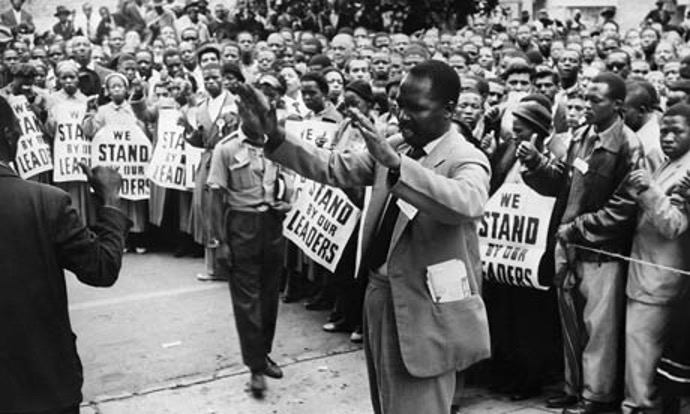The Making of a Spokesperson: Nelson Mandela and the Power of Narrative
Nelson Mandela transcended borders and cultures to become a global symbol of peace, justice, and human dignity. A key element of his legacy lies in his exceptional role as a spokesperson for Africa. But what events and qualities made him so effective? This article explores the journey that shaped Mandela's voice, examining the defining moments that honed his message and resonated with the world.
From Rebel to Revolutionary: The Early Fight for Equality
Mandela's story begins in the crucible of South Africa's apartheid regime. Witnessing racial segregation firsthand, he joined the African National Congress (ANC) in his youth, advocating for non-violent resistance. His charisma and leadership qualities were evident early on. During the Defiance Campaign of 1952, he emerged as a powerful spokesperson, articulating the grievances of the black majority with eloquence and clarity.
Imprisonment and the Birth of an Icon
Mandela's imprisonment in 1962, following his leadership of the armed wing of the ANC, marked a turning point. While silenced physically, his legend grew. The Rivonia Trial, where he delivered his iconic "I am prepared to die" speech, became a global platform. His defiance in the face of oppression resonated with audiences far beyond South Africa's borders. Mandela, though absent, became a potent symbol of the struggle against racial injustice.
The Negotiator: From Prisoner to Peacemaker
Mandela's release from prison in 1990 ushered in a new era. He stunned the world by advocating for reconciliation with his former oppressors. This shift in strategy, a testament to his pragmatism and unwavering commitment to a free South Africa, proved to be a masterstroke. Mandela, once seen as a radical, transformed into a statesman seeking unity and forgiveness. This resonated with a world weary of conflict. His willingness to engage in dialogue with former adversaries, embodied by his handshake with then-President F.W. de Klerk, showed a remarkable ability to see beyond past grievances.
The Unifying Voice: Leading a Nation to Reconciliation
In 1994, Mandela became South Africa's first black president. His inaugural address, a powerful call for national unity and forgiveness, solidified his position as a spokesperson for peace and reconciliation. He understood the importance of narrative in shaping a new South Africa. By emphasizing unity over revenge, he addressed the anxieties of both the black majority and the white minority. Mandela's message transcended South Africa's borders, offering a roadmap for other nations grappling with ethnic and racial divisions.
A Global Icon: Championing Human Rights Beyond Borders
Mandela didn't limit himself to South Africa. He became a vocal advocate for human rights across the globe. He spoke out against tyranny in places like Iraq and Libya, urging leaders to prioritize peace and justice. His voice carried immense weight due to his own history of struggle and his unwavering commitment to human dignity. He championed the fight against HIV/AIDS, a disease devastating Africa, and used his platform to raise awareness and advocate for global action.
The Power of Forgiveness and the Legacy of Hope
Mandela's legacy as a spokesperson lies not just in his rhetoric but in his embodiment of forgiveness. Emerging from prison without bitterness, his commitment to reconciliation was a powerful message. It showed the world the possibility of healing after deep divisions. His unwavering optimism, captured in his quote "No one is born hating another person because of the color of his skin, or his background, or his religion. People must learn to hate, and if they can learn to hate, they can be taught to love, for love comes more naturally to the human heart than its opposite," offered a beacon of hope in a world often consumed by conflict.
Mandela's Impact: A Spokesperson for a Continent
Mandela's influence extended beyond South Africa. He became a symbol of Africa's resilience and potential. His story challenged stereotypes and showcased the continent's rich history and vibrant culture. He inspired a generation of African leaders to fight for democracy and human rights, becoming a role model for peaceful resistance and reconciliation.
Beyond the Myth: A Man of Complexity
Mandela's legacy is not without its complexities. His leadership, while lauded by many, was not without controversy. However, his ability to inspire millions and unite a deeply divided nation remains undeniable.
In conclusion, Nelson Mandela's journey from young activist to global icon shaped him into a powerful spokesperson for Africa and the world. His ability to communicate a message of peace, forgiveness, and reconciliation resonated across cultures and continents. His legacy continues to inspire, reminding us of the power of narrative and the potential for human beings to overcome division and build a better future.




























